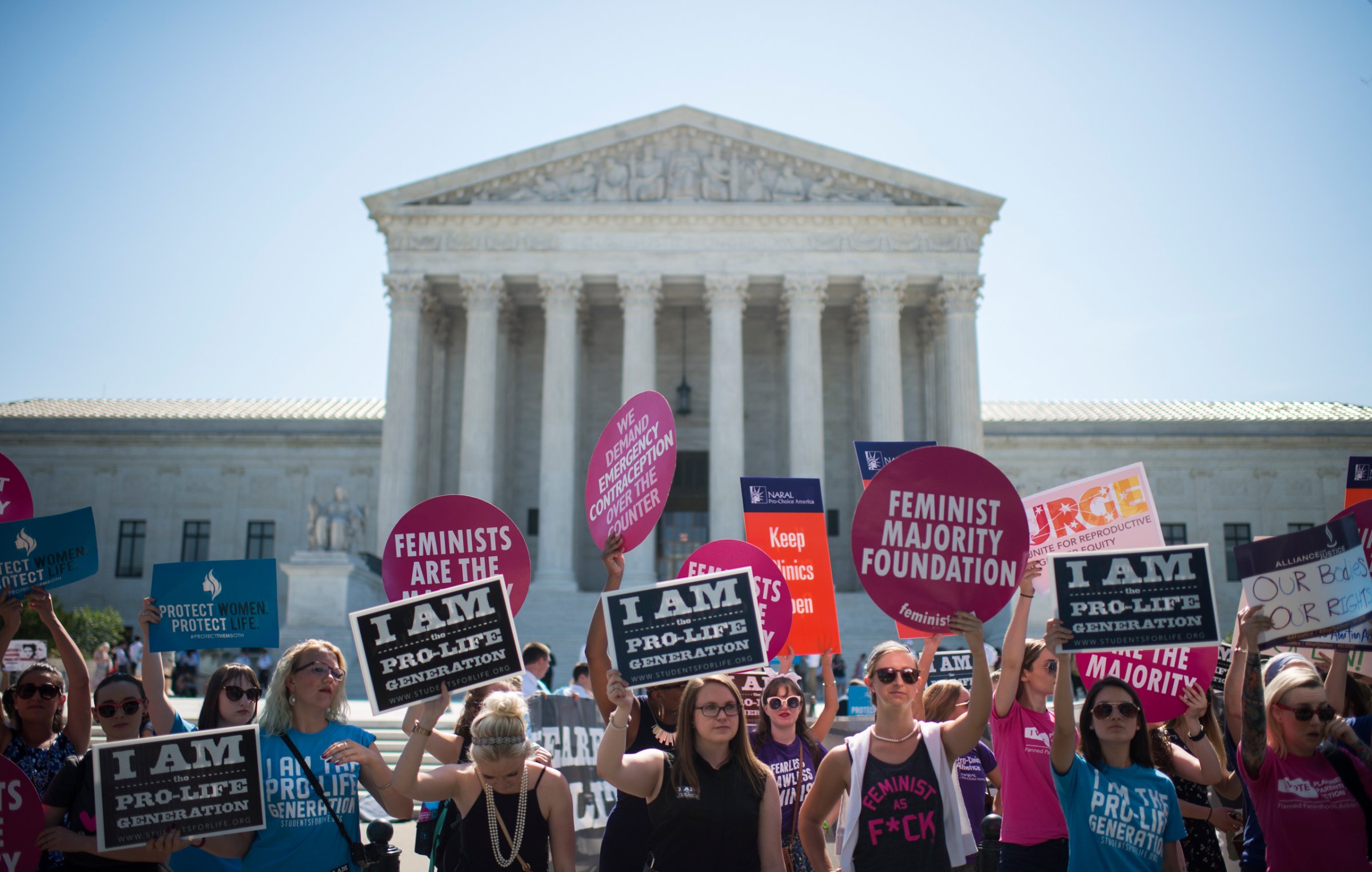
The upcoming Supreme Court decision in Whole Woman’s Health v. Hellerstedt looms over American women like an incoming tidal wave. Though the case comes out of Texas, the decision will have ramifications for access to abortion care nationwide. If the laws in question are upheld, clinics in states with similar laws may close, and anti-abortion legislators may be motivated to chip away further at the rights first articulated in Roe v. Wade.
How did we get to this point? Unjust and repressive abortion laws are not reflective of overall American attitudes toward abortion. A recent Pew Research Center poll found that 56% of Americans believe abortion should be legal in all or most cases.
Yet according to the Guttmacher Institute, 288 state level abortion restrictions have been passed since 2010. Anti-abortion organizations, including Americans United for Life and Susan B. Anthony List, bolstered by the perceived moral authority of the U.S. Conference of Catholic Bishops and other conservative religious operatives, have helped churn out bills similar to the Texas law and shopped them around to state legislatures across the country. These efforts frame requirements like waiting periods, mandatory ultrasounds and targeted regulations of abortion providers (or TRAP laws) as rules that would ensure that women do not rush into the decision and that would protect women from shoddy clinics and poorly trained doctors.
But these laws have made it much harder for poor women, women of color and residents of rural areas to get access to abortions. Women who need these services often face more hurdles when seeking a timely appointment with one of the few clinics left open in their state. With clinic closures come longer driving distances, which require reliable transportation and money for gas or fares. In states with waiting periods, patients must make multiple trips to the clinic, often over several days, before they are able to get the care they seek. These burdens are onerous enough before factoring in the need to take time off work and find dependable childcare. With the clock ticking from the moment a woman discovers she is pregnant until the day she can no longer obtain a first trimester abortion, each delay can be stressful.
As a Catholic, I have been taught that social justice and caring for the poor are central to my faith. It’s appalling that so many women face obstacles to an essential and legal health-care procedure, especially when I consider the role that a minority faction of my church has played in passing laws to make it difficult or impossible to access abortion and contraception.
I am far from the only one. Only 10% of U.S. Catholics agree with the Vatican’s position that abortion should be illegal in every case, and Catholic women have abortions at the same rate as other women: according to a 2010 Guttmacher survey, 28% of women who had an abortion self-identified as Catholic, compared to the 27% of all women of reproductive age who have had an abortion. Catholic bishops who collude with anti-abortion groups to promote these restrictive laws are betraying their own flock and leaving poor women—Catholic and non-Catholic alike—floundering in a stormy and inhospitable sea.
The Supreme Court must overturn the Texas laws and throw women a life vest. Nothing less than freedom to make our own decisions and justice for those in need are at stake. As an American, I hope our highest court in the land will uphold these sacred principles of our nation. As a Catholic, I pray, too, that our bishops will listen to the life experience of those in the pews, and trust each of us to follow our consciences in these matters. That will truly mean liberty and justice for all.
More Must-Reads from TIME
- Why Trump’s Message Worked on Latino Men
- What Trump’s Win Could Mean for Housing
- The 100 Must-Read Books of 2024
- Sleep Doctors Share the 1 Tip That’s Changed Their Lives
- Column: Let’s Bring Back Romance
- What It’s Like to Have Long COVID As a Kid
- FX’s Say Nothing Is the Must-Watch Political Thriller of 2024
- Merle Bombardieri Is Helping People Make the Baby Decision
Contact us at letters@time.com